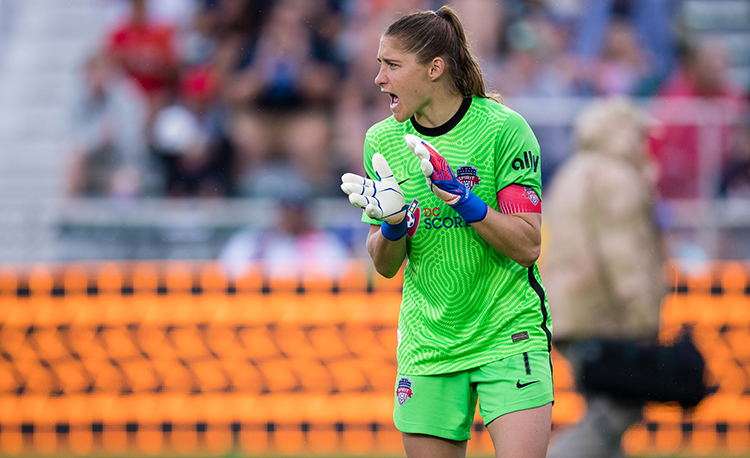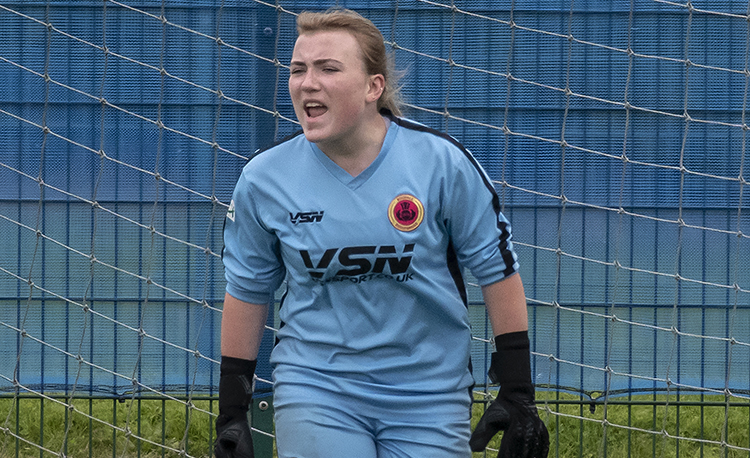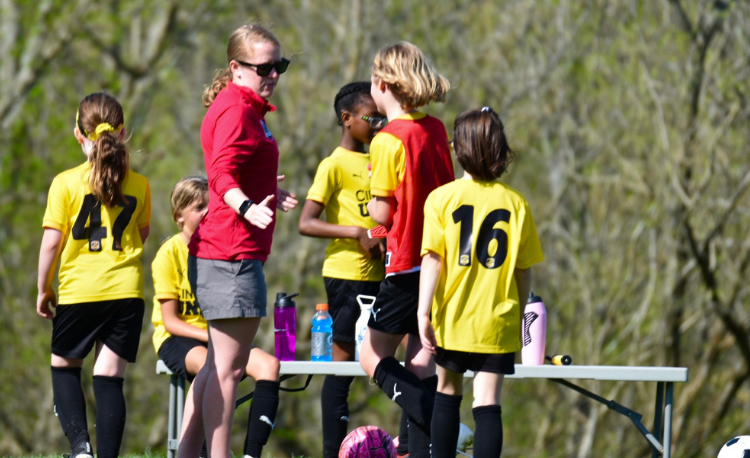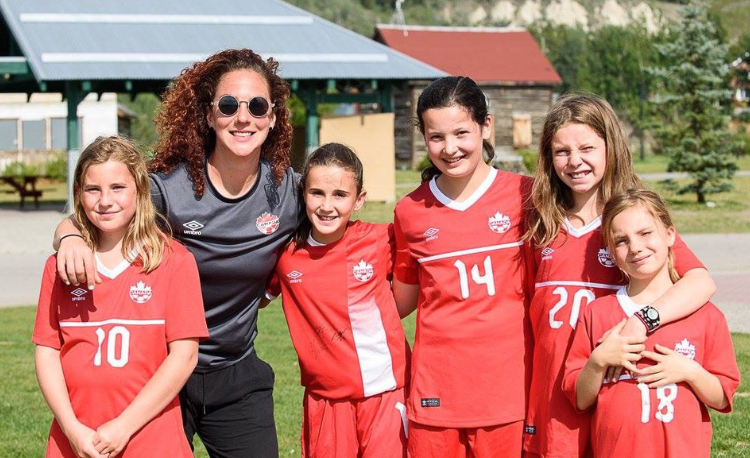You are viewing
1 of your 3 free articles
Now you're talking
What a goalkeeper says, and how, is vital to defending, says Justin Bryant
It is well-established that goalkeepers need to communicate from the back.
The perspective of our position allows us to see the entire pitch - and our teammates rely on our verbal cues to help them recognize threats and vulnerabilities before they can turn into chances.
But not every goalkeeper knows what this communication should entail. Is it always barking orders? Is it screaming in anger at your defenders after shots, like you see the pros doing on TV every weekend?
I believe the most effective communication does three main things - it creates calm out of chaos, alerts teammates to potential danger, and offers positive feedback for effective defensive actions.
Put even more simply: your teammates need instruction, information, and praise.
Creating calm out of chaos
This starts with the expectation that every match will bring moments of pressure and disarray.
Football is dynamic, especially when an attack gets near to goal. If a goalkeeper’s response to every attack is near-panic screaming lacking in specifics, defenders will soon learn their goalkeeper is not a source of helpful information; they are just reiterating what everyone on the pitch already knows. You are going to be under pressure. Learn to handle it.
Calm for our teammates starts with understanding what they can do to help the situation.
"Football is dynamic. You are going to be under pressure. Learn to handle it..."
In chaotic moments, can you let specific players know what specific actions they can take? “Jenna, show her outside!” is much better than “Step!” or “Press!”. Starting communication with a name gets you that player’s attention. Follow it with an action for them to take, in as few words as possible.
Defenders get frazzled when they don’t know what to do. Giving them a task with clarity allows them to focus on that one thing.
Instruction and information
Communication includes both instruction and information. Think of ’instruction’ as a demand to perform a simple, immediate task.
A call of “Away!” tells your team a ball needs to be cleared, and “Step!” tells them they are too deep. This is not quite the same thing as giving information, which would be something like “Becca, right shoulder!” to let a defender know of a run they need to track.
A call of “Time” is also informative; it tells a teammate you’ve just passed to, who may have their back to the pitch, that they can safely take a touch and turn. And, of course, “Keeper!” lets everyone know you’re coming to deal with the ball yourself.
Make sure you understand why you are speaking: is it to tell your teammates to do something? Or is to give them information about what is happening?
Tone of voice
This can be just as important as context in some cases.
Again, when dealing with an attack in our defensive end, everything is urgent; but that doesn’t mean every word from our mouth has to sound panicked.
In general, you’re going to be louder and more urgent with instruction than information, because you are looking for an immediate action to correspond with instruction.
Try to deliver information in a more even, measured tone, transmitting the idea to your team that, yes, we’re under some pressure, but we can handle it with some simple steps.
An authoritative but calm voice helps spread confidence in you throughout your team. Consequently, everyone plays with more relaxation and trust.
I once coached a young goalkeeper who screamed “Time!” with the same urgency they screamed “Man on!”. I pointed out that those are completely different scenarios, and that we want our teammates to be calm on the ball when in fact they have time.
So why not transmit this not only with what we say, but how we say it? Especially considering that, in pressure situations, teammates may notice our tone before they recognize what we’re actually saying.
You can still speak loudly and with authority, but in a measured tone. It’s one of the most effective ways a goalkeeper can transmit calm though their team.
Praise be
A mistake young goalkeepers often make is only communicating instruction and correction, leaving out praise.
Why is praise important? Well, praising a defensive action helps reinforce the idea that your teammate has done something good, and they should keep on doing it.
"An authoritative but calm voice helps spread confidence through the team..."
It can be something as simple as “Great tackle!”, which gives the kind of feel-good reward all humans crave. But it’s even more effective when they are still in the middle of a situation and are handling it correctly, and we want them to keep doing that.
Top among these is when a defender has an attacker facing away from goal. Recognize that this is a good situation for the defending team, and trying to win a tackle from this scenario often results in needlessly giving away fouls.
A shout of, “Excellent Jaiden, stay on your feet, she’s going nowhere!” lets Jaiden, or whoever, know that what she’s doing is good, and there’s no need to try to lunge in to win the ball.
Defenders can get impatient, and feel like everyone is waiting for them to win a tackle. But defending and tackling are not the same thing, and tackling is not always the right call. It’s our job to help them understand this.
On top of all that, praising your teammates is a good way to develop a bond with them. Teammates who respect and like their goalkeeper tend to work harder and listen better to what they say. If you are only ever correcting a teammate, they may eventually begin to tune you out.
Goalkeeper is a leadership position. By virtue of our perspective of the entire pitch, our teammates rely on us not just for saves, but to help prevent shots in the first place.
Effort put into improving and refining our communication will pay off with more organized responses to pressure.
Go into each match embracing your responsibility to create calm out of chaos, to transmit instruction, information, and praise, and you’ll be another step closer to being a complete goalkeeper.
Related Files
Newsletter Sign Up
Newsletter Sign Up
Discover the simple way to become a more effective, more successful soccer coach
In a recent survey 89% of subscribers said Women's Soccer Coaching makes them more confident, 91% said Women's Soccer Coaching makes them a more effective coach and 93% said Women's Soccer Coaching makes them more inspired.
*includes 3 coaching manuals
Get Inspired
All the latest techniques and approaches
Women's Soccer Coaching offers proven and easy to use soccer drills, coaching sessions, practice plans, small-sided games, warm-ups, training tips and advice.
We've been at the cutting edge of soccer coaching since we launched Soccer Coach Weekly in 2007, creating resources for the grassroots youth coach, following best practice from around the world and insights from the professional game.








